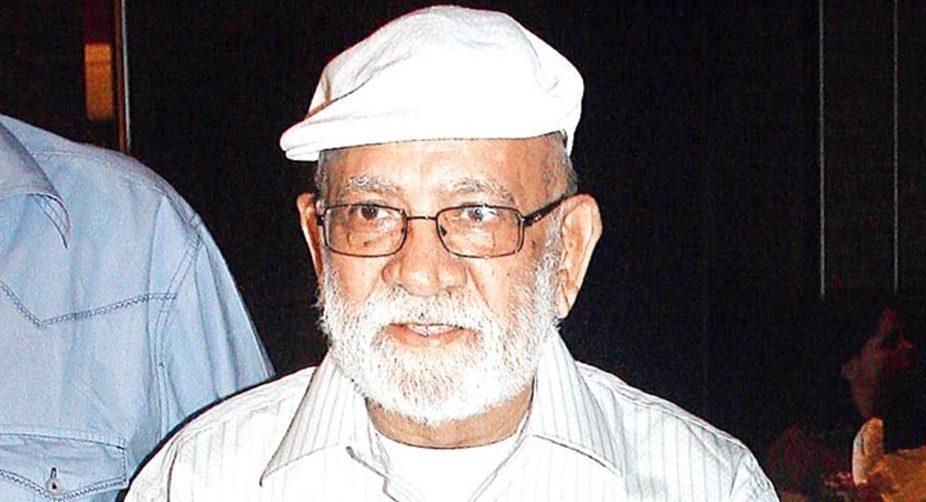Cyber security experts, film directors and producers tell us why Tamil Film Producers’ Council president Vishal’s demand for a Government ban on Tamil Rockers and other piracy websites may not be helpful
Soon after director Vasanthabalan lashed out at TFPC president Vishal to rein in the piracy site Tamil Rockers, Vishal met Tamil Nadu CM Edappadi Palaniswami to ask for a ban on the website. He told the press later that if the Government wished, they could curb piracy in a day. “Like how they’d banned porn websites,” he said.
This was the first time that Vishal had discussed piracy with the Government, in what has been a long battle against it – something that was promised a fresh course when Vishal was elected president of the Tamil Film Producers’ Council in April 2017. A few months before Vishal was sworn in, the battle had come to a head with producer KE Gnanavel Raja filing a petition at the Madras High Court to ban the sites that threatened to release his film Si 3. Tamil Rockers – the site that routinely leaks pirated versions of new films on the day of their release – had made a Facebook post announcing the leak of Si 3 – the third film in the Singam franchise starring Suriya and Shruti Haasan in the lead.
Producer Suresh Kamatchi, who has been a vocal critic of Vishal, and also one of the dissenting members of the TFPC, wonders to Silverscreen why it had taken the actor so long to bring up the matter. “Before Vishal entered the TFPC, he said he could control piracy in three days if he had the power. Did it take him two years to realise he couldn’t do it and must approach the Government?”
The Tamil Nadu Government is yet to respond to Vishal’s request. Meanwhile, security experts who have been working with Tamil film producers and directors to take down piracy links, say the issue is a lot bigger and a Government ban on the site typically means blocking the domain ID in a particular region – in this case India – while the site can come up again under a new server.
Sudarsan, the founder of Copyright Media, says that in 2014, he worked to take down the Thiruttu VCD website in the same way, and that bringing down Tamil Rockers now would be more challenging because their servers are secure and not easily accessible. Today, anti-piracy teams are hired by filmmakers to work during the first week of their movies’ release and block links to pirated copies of films as and when they uploaded. This ensures the content is not available anywhere in the world.
He explains, “The site can come up under a new name and server even after a Government ban. We’ve experienced this. I’m not saying there’s no solution, but the reason we’ve not been able to block Tamil Rockers is because it involves a huge process and they have a lot of backup.”
The piracy site’s servers operate in countries like Sweden and Switzerland, where our copyright infringement act doesn’t apply. “So we have a software to find piracy links on Google. Once a link is posted on a site like Tamil Rockers, we remove all direct links to slow download. And in the meantime, take down the link so people don’t get enough time to complete download. For 80 percent of the websites, anti-piracy companies like ours have the rights to take down links from sites. Which means taking down the content and not blocking the site. Right now, we are able to stop 80 out of 100 downloads.”
Sudarsan has worked on films like Viswasam, Dhilluku Dhuddu 2, Peranbu, Mersal, Viswaroopam 2, Baahubali 2 where, according to him, 70 to 80 percent of links were taken down. He has also worked on smaller productions and the fee charged depends on the budget of the film. “Small film producers can employ us, we don’t charge a bomb for it.”
Director Balaji Tharaneetharan says piracy teams should be hired for longer than three weeks to ensure that the films are not available online well after they leave theatres. “Hire teams for more than just three to four weeks, and individually tackle piracy in an extensive way.” His recent film Seethakaathi leaked on the day of release. He adds that it is useless to trade blame for not tackling piracy when films can have an anti-piracy team. “We should take care of our own films.”
Not all in the industry however agree that they must spend on an anti piracy team. The TFPC has an anti piracy squad with funds allocated for it. The Tamil Nadu Government, meanwhile, deducts a high 28 per cent local body entertainment tax, in addition to the GST, and this takes a toll on the industry which is already reeling under piracy.
Director Ponram says, “When my film Seema Raja released, I hired 250 people to stop piracy. The Government can do something similar. We are paying a tax of 28 per cent. In Malayalam and Telugu industry, there’s better understanding between people. But because Tamil Nadu Government is not strong, and our police are not strong, it happens here is what I think.”
Are the TFPC, police officers paid by piracy networks?
Producers allege that complaints against piracy networks are registered with the TFPC’s anti piracy squad, but no action is taken against them and their names are not revealed. Producer Suresh Kamatchi asks, “Our question is simple. Where are the reports that the anti piracy teams have submitted? Who are the people in the report? Vishal knows who they are, he knows the people behind the site. It’s clear that there’s a connection.”
He declares that the anti-piracy coordinators are not supported by the TFPC; they are not paid for their work. “It was the TFPC that set up the anti piracy squad, then why are they being stopped? When you’ve spent Rs 7.5 crore (from the TFPC deposit account for the Ilaiyaraaja 75 event), why can’t you pay them their salary?”
Anti piracy coordinator Sathish Kumar recounts many instances when he travelled to track people involved in film piracy in Madurai, Salem, Karaikudi, areas around Virudhunagar, only to be silenced by both the TFPC and the police officials. He reveals, “As of 2016, I’d filed 51 cases against cable TV operators, nine against theatres, and six against CD godowns. This was before Vishal sir came to power. After he won the elections, only three to four cases were filed. SR Prabhu said it costs Rs 50,000 per case. Then what about the 60 cases I’ve filed? The producers have used us, we are being involved in court cases only for their good. How can we do it without their support?”
Sathish Kumar adds that he later found out about TFPC’s connection with piracy networks. Soon after the release of Vishal’s Sandakozhi, he got a call about films being illegally screened by a TV channel in Tirupattur near Karaikudi. He says that films release in almost all cable TV channels illegally, when they were never sold the rights. The TFPC is not addressing this. “Three films were telecast by a channel. Some producers got together and one of them fined the channel. He got Rs 1 lakh and let them go. No case was filed.”
He says, “Later, I got a call that Vishal sir’s film was being shown, so I took a bus and went to Tirupattur. I recorded the film being telecast and sent it to Vishal sir and Siva (TFPC anti-piracy squad head). For nearly a week, no action was taken.” Sathish Kumar then explains that when he went to Tirupattur LLO and filed a complaint, they received a call from TFPC’s Siva. “Siva told me since six months had passed, it’s okay to let them play on the channel. I asked if he has given cable TV rights to them, and he told me not to get involved in this and that Vishal sir will handle it. Calls were also made to the DSP from the council office. At the station, the channel tried to pay me off with Rs 5 lakh. When I told producer Siva, he said take it [the money] if you want. I filed a case against the channel and left.”
Sathish says the case was never brought up again, and from the next day, he was under a lot of pressure from the council for rumours had begun spreading that he had taken the money. “If they are truly supportive of people working for anti piracy, why wasn’t I paid at least a travel allowance for all the court cases and police station visits I made?”
He adds, “Only producer Gnanavel Raja paid me a salary for six months. I am hurt because I struggled to find these piracy networks. When I got people arrested, they (producers) congratulated me and sent messages on WhatsApp, but when it came to following up on the cases and making court visits, my family is scared and I get no support from any producer.”
TFPC treasurer, producer SR Prabhu, denies these allegations. “This is not true. When there isn’t enough man power, the process will be slow. The team should be able enough to match the crime rate ratio. Now, most piracy happens online, and the State Government has the cells to deal with it, but they don’t have higher power. Piracy comes under the Central Government’s telecom department. There’s confusion around who has what power, their limitations etc.”
When asked if TFPC should fund people working independently to tackle anti-piracy, Prabhu says, “If TFPC is that rich we can fund.” He also says it’s difficult for producers to individually take action, “The case might go on for two or ten years, the producer should have the right mindset and financial capability to face and compete it. For one particular film there are about 150 different rights, they can’t go and fight for these rights each time.”
He says, “There should be a centralised system people can approach to find out who owns the rights. The day Government brings a law saying that it is a crime to have content which one has not bought or subscribed to, that day automatically piracy will reduce.”
Prabhu adds that the Central Government’s recent announcement of additional provisions to the Cinematography Act is a good move. “The act will help because more cases will be registered. The Government has now brought clarity to this.”
HD copies of films leak; what can the law do?
During this year’s union budget announcement, the Narendra Modi-led NDA Government said that anti-camcording provisions will be introduced to help stop film recordings in theatres. This was after the Ministry of Information and Broadcasting proposed recommendations for stricter penalties against piracy recordings in theatres, and to bring in anti-duplication provisions.
SR Prabhu says that online piracy also has international laws involved which makes it an expensive effort, so they must wait for the Government to make a move. “We approach in a territorial way, take up theatres one territory at a time and see what must be done. We’re doing this now to stop leakage at the initial level.”
The current laws and recommended provisions will not affect the circulation of HD copies of films, many of which leak on big piracy sites like Tamil Rockers on the day of release. Both the TFPC and the Government have not brought this up yet. SR Prabhu says, “Sometimes when open files go to remote areas, they tap the content and take the files. So the producers have to make sure they watermark everything.”
Producer Suresh Kamatchi adds that these are all films the foreign rights of which have been sold. Director Ponram opines that when original copies are submitted for foreign rights and satellite rights, they get leaked. “I worked on a film called Siva Manasula Sakthi, for which the producers did not sell foreign rights. This was when Thiruttu VCD was very famous. The film did not come out anywhere for 15 days, and it leaked only after the rights were sold.”
He further says, “It gets leaked by important people we know and deal with, we know who are doing this. The law should enable us to help find and arrest them, but piracy networks know that the government and police are not taking steps. Vishal spoke strongly when he came to power, but people in piracy know there’s politics inside.”
Recommended
There are ways to prevent piracy, technology consultant Sudarshan Srinivasan observes, but they are not implemented because those in power don’t want them to be. “You can’t wake a person who is pretending to be asleep. HD copies are definitely an inside job, producers themselves may sell these copies for added revenue after distribution. There’s black money involved.”
Meanwhile, Tamil Rockers remain as strong as they were a year back. The latest films to release on the piracy site were Karthi starrer Dev, Mammootty’s Yatra, and Santhanam’s Dhilukku Dhuddu 2.
Directors like Vasanthabalan, whose small budget film Jail is gearing up for release, are afraid that their films too will face the same fate.
*****
Also Read: Tamil Rockers, Kollywood and the Business of Piracy



